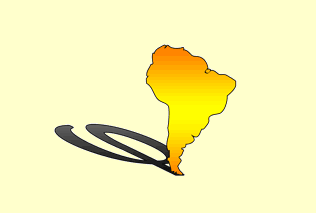EDUCAÇÃO DOMICILIAR COMO PROTECIONISMO RACIAL NOS ESTADOS UNIDOS
DOI:
https://doi.org/10.26512/resafe.vi31.28255Palavras-chave:
Educação domiciliar, Afro-americanos, racismo, vida familiar, qualidade da educaçãoResumo
Embora a educação domiciliar esteja aumentando consideravelmente na comunidade negra dos Estados Unidos, as pesquisas sobre as motivações dos pais negros que escolhem educar seus filhos em casa são raras. De fato, os pesquisadores parecem supor que o desligamento dos afro-americanos do sistema escolar é ditado por razões similares à quelas citadas pelos brancos. Muitas vezes, os pesquisadores eurocêntricos negam que os africanos sejam capazes de avaliar seus problemas e sejam incapazes de tomar iniciativas para encontrar soluções para eles. É como se tudo que os negros pudessem fazer fosse simplesmente imitar os brancos cuja experiência é considerada universal. No entanto, a experiência e a voz únicas dos afro-americanos devem ser levadas em conta se realmente quisermos entender por que mais e mais negros não mandam seus filhos para a escola. Neste ensaio, eu exploro três das principais razões pelas quais os afro-americanos estão cada vez mais escolhendo educar seus filhos em casa, a saber: o racismo branco e seu impacto devastador sobre as crianças africanas; a insatisfação com a baixa qualidade da educação; e a desintegração dos laços familiares sob o impacto da escolaridade. Este estudo é baseado em entrevistas com 74 famílias negras que educam seus filhos em casa nos Estados Unidos.
Downloads
Referências
ASANTE, Molefi K. Afrocentricity. Trenton: Africa World Press, 2003
____. An Afrocentric Manifesto. London: Polity Press, 2007
BARTON, P. The dropout problem: Losing ground. Educational Leadership. 63 (5), 2006, p. 14-18.
BERK, L. Why parenting matters. In: Childhood Lost. How American Culture is Failing Our Kids. S. Olfman (ed). Westport, Conn.: Praeger, 2005, p. 19-53.
CHADWICK, C. Seven minutes a day: the modern-day excuse for a parent. Disponível em: http://www.thenational.ae/thenationalconversation/comment/seven-minutes-a-day-the-modern-day-excuse-for-a-parent#ixzz2JeNfFbPo, 2011. Acesso em:
CHENG, Y., Tao, M., Riley, L., Kann, L., Ye, L., Tian, X., & Chen, D. Protective factors relat-ing to decreased risks of adolescent suicidal behavior. Child Care Health and Develop-ment, 35, 2009, p. 313”“ 322.
DE GAETANO, G. The impact of media violence on developing minds and hearts. In: Childhood Lost. How American Culture is Failing Our Kids. S. Olfman (ed). Westport, Conn.: Praeger, 2005, p. 89-106.
DONOVAN, M. & Cross, C. (Eds.). Minority students in special and gifted education. Washington: National Academy Press, 2002.
EBERHART, N. K. & Hammen, C. L. Interpersonal predictors of onset of depression during the transition to adulthood. Personal Relationships, 13 (2), 2006, p. 195-208.
FEAGIN, J. Racist America: roots, current realities, and future reparations. New York: Routledge, 2010.
FRANKENBERG, E., Chungmei, L. & Orfield, G. A Multiracial Society with Segregated Schools: Are We Losing the Dream? The Civil Rights Project Harvard University, 2003.
GATTO, J. The Underground History of American Education. New York: The Oxford Village Press, 2006.
HEWLETT, S. & West, C. The War against Parents. In: Childhood Lost. How American Culture is Failing Our Kids. S. Olfman (ed). Westport, Conn.: Praeger, 2005, p. 57-87.
HILLIARD, A. III. (1997). Teacher education from an African American perspective. In: J. Jordan Irvine (Ed.). Critical knowledge for diverse teachers & learners. Washington: American Association of Colleges for Teacher Education, 1997, p. 125-148.
ILLICH, I. Deschooling Society. NY: Harper & Row, 1971.
INGERSOLL, R. Out-of-field teaching, educational inequality, and the organization of schools. (Research Report # R-02-1). Center for the Study of Teaching and Policy. Uni-versity of Washington, Seattle, 2002.
JOHNSON, H. The American dream and the power of wealth: Choosing schools and inheriting inequality in the Land of Opportunity. New York: Routledge, 2006.
JONES, E. & Nimmo, J. Emergent Curriculum. Washington DC: NAEYC, 1994.
KEHILY, M. Childhood in crisis? Tracing the contours of ‘crisis’ and its impact upon con-temporary parenting practices. Media, Culture & Society, Volume 32, Issue 2, 2010, p. 171-185.
KIRSH, STEVEN. Children, adolescents, and media violence: a critical look at the re-search. Thousand Oaks: Sage, 2012.
KUNJUFU, K. Black students-white middle-class teachers. Chicago: African American Images, 2002.
LADSON-BILLINGS, G. J. The dreamkeepers: successful teachers of African-American children. San Francisco, CA: Jossey-Bass, 1997.
LADSON-BILLINGS, G. Fighting for our lives. Preparing teachers to teach African American students. Journal of Teacher Education. Vol 51, 3, 2000, p. 206-214.
LOMOTEY, K. (Ed.). Encyclopedia of African American Education. 2 volumes. Thou-sand Oaks: Sage Publications, 2010.
MAZAMA, A. (Ed.). (2003). The Afrocentric paradigm. Trenton: Africa World Press, 2003.
MAZAMA, A. & Musumunu, G. African American Homeschooling: Motivations, Chal-lenges and Opportunities. New York: Routledge, 2015
MEDLIN, R. Homeschooling and the question of socialization. Peabody Journal of Edu-cation, 75:1-2, 2000, p. 107-123.
NYCLU Report. (2010). School to prison pipeline. Available at Disponível em: http://www.nyclu.org/issues/youth-and-student-rights/school-prison-pipeline. 2011. Aces-so em:
PERSELL, C. How race and education are related. Schools and Society. A Sociological Approach to Education. J. Ballantine & J. Spade (eds). 4th edition. Thousand Oaks: Sage, 2012, p. 311-320.
ROTHSTEIN, R. The achievement gap: A broader perspective. Educational Leadership, 61(3), 2004, p. 193-195.
SOARES, L. & Mazzeo, C. College-Ready Students, Student-Ready Colleges. An Agen-da for Improving Degree Completion in Postsecondary Education. Center for Ameri-can Progress. 2008.
WACQUANT, L. Deadly symbiosis: When ghetto and prison meet and mesh. Punishment and Society, 3, 2011, p. 95-133.



